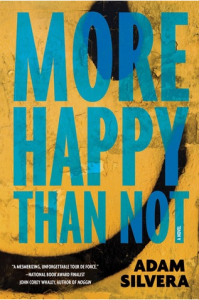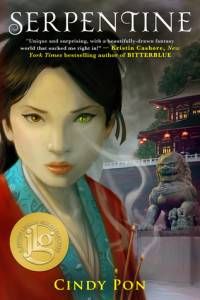
Moving To, Moving On, And Moving Past: On Weeding Books
I’m moving soon—across-the-country, leave-my-friends-of-eight-years, leave-my-favourite-home kind of moving—and even though I’ve hired movers, I have taken it upon myself to weed out my library. Given recent events, I have chosen the following method to guide me through the process:
STEP ONE: Consider Where I Am Moving To
I don’t mean literally. Though, you probably should consider how much space for shelves you have at your new place. I mean it in a “Where Do You See Yourself in Five Years?” sort of way. If the answer is “The Same Place As Usual” because you are terrified of change the way I am, then it’s time for drastic measures.

Basically, think of the future you want and make sure your bookshelves reflect that future.
*I guess Silvera’s book is technically SF, but it reads like contemporary—and for good reason.
STEP TWO: Consider Moving On
Yes, change is hard and saying goodbye to old favourites is tough, but if you grew up with them, chances are you’re already carrying them in your heart and mind. Sometimes that’s a sweet thought. For me, if I had the extra load of the Enid Blyton books I grew up with, I’d love to get place them page-by-page through a shredder. If only getting rid of the books meant getting rid of the years I’ve spent normalizing a deep self-hatred. The fact that you can find Blyton’s books in any ex-British-colony is both funny and chilling, but given what’s just happened in the States, I’m going to lean on the side of chilling as I pack.
STEP THREE: Consider Moving Past Discomfort
Basically, if this American election has taught me anything, it is that people need to be more empathetic—something that just won’t happen if we keep telling the same stories with the same players. For me, this means being more careful about the stories I read, review, and share. I thought I was already committed to diversity in my shelf (ha) but I’ve decided to enforce stricter rules for myself (ha): I will be focussing on bringing content from writers who aren’t straight, cisgendered, able-bodied, and/or white. Which means, until further notice, I won’t be buying/borrowing/reading books by straight, cisgendered, able-bodied white folks. I will continue with the trilogies/duologies/series I’m already invested in, but I probably won’t talk about them. This also means I have to go through the awkward conversation with my friends about the kinds of books they want to buy for me, but awkward is so much simpler than apocalyptic, so I don’t mind.

It’s time for change and this is how I’m dealing with it. *flings Philip Pullman into donation bin*
















